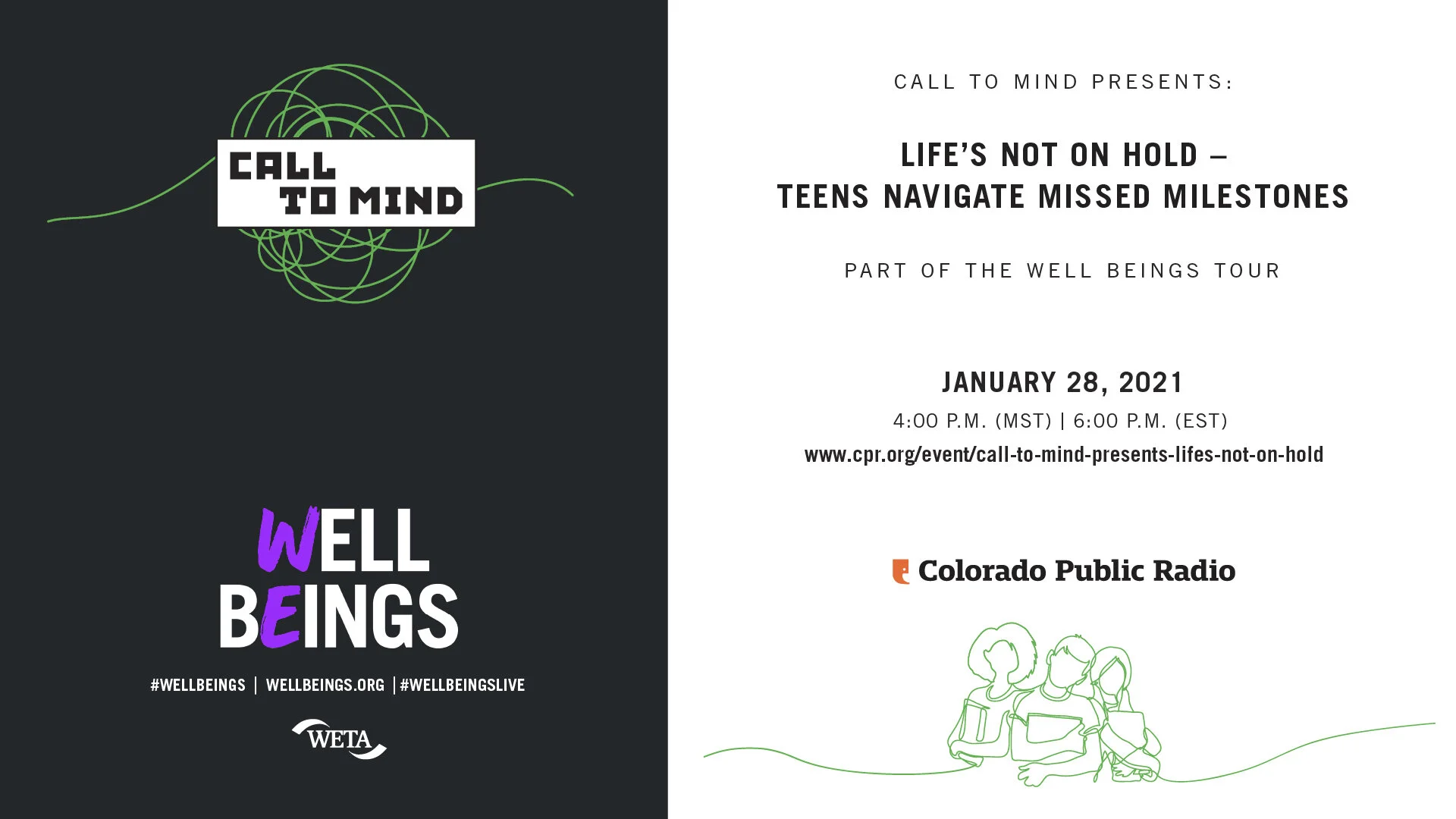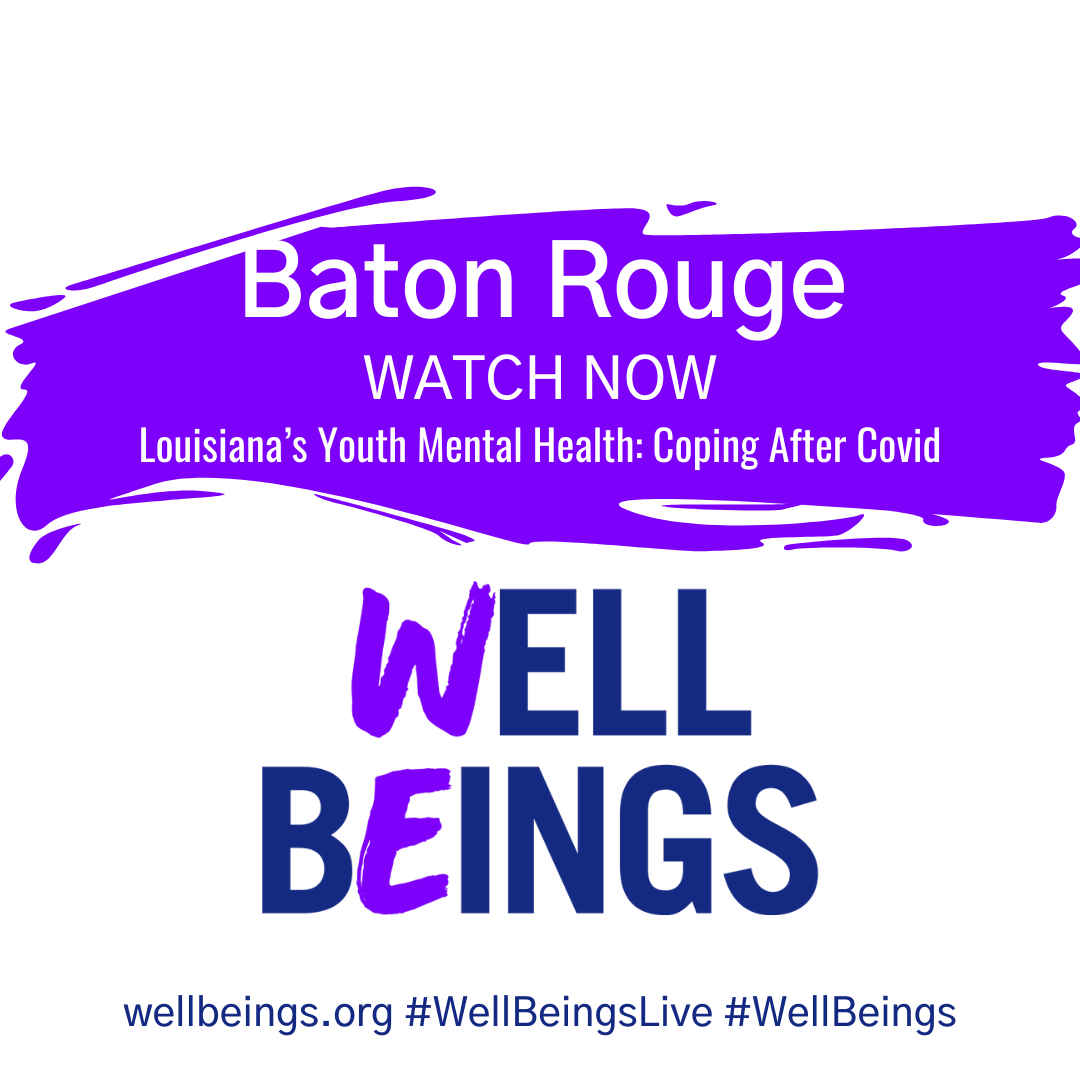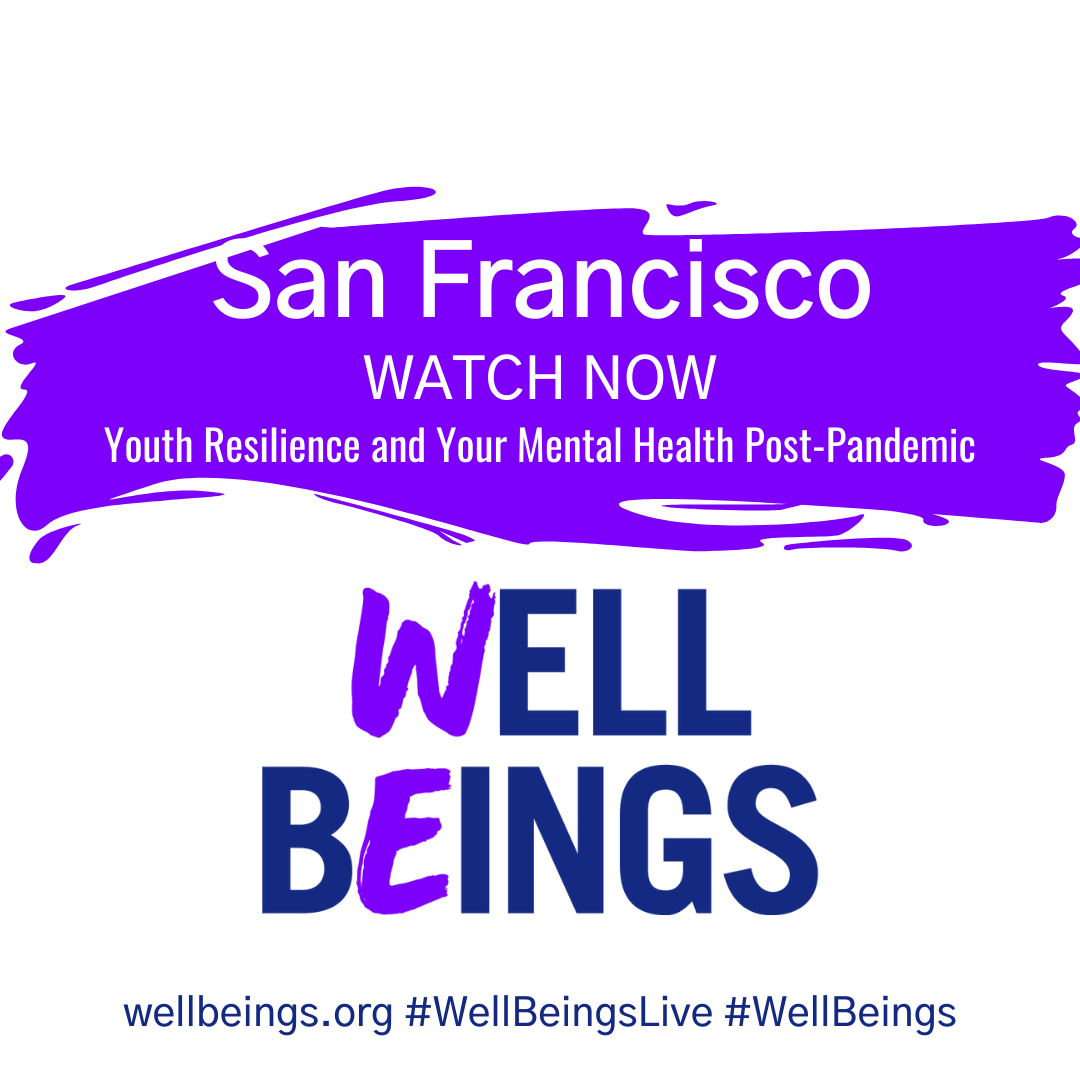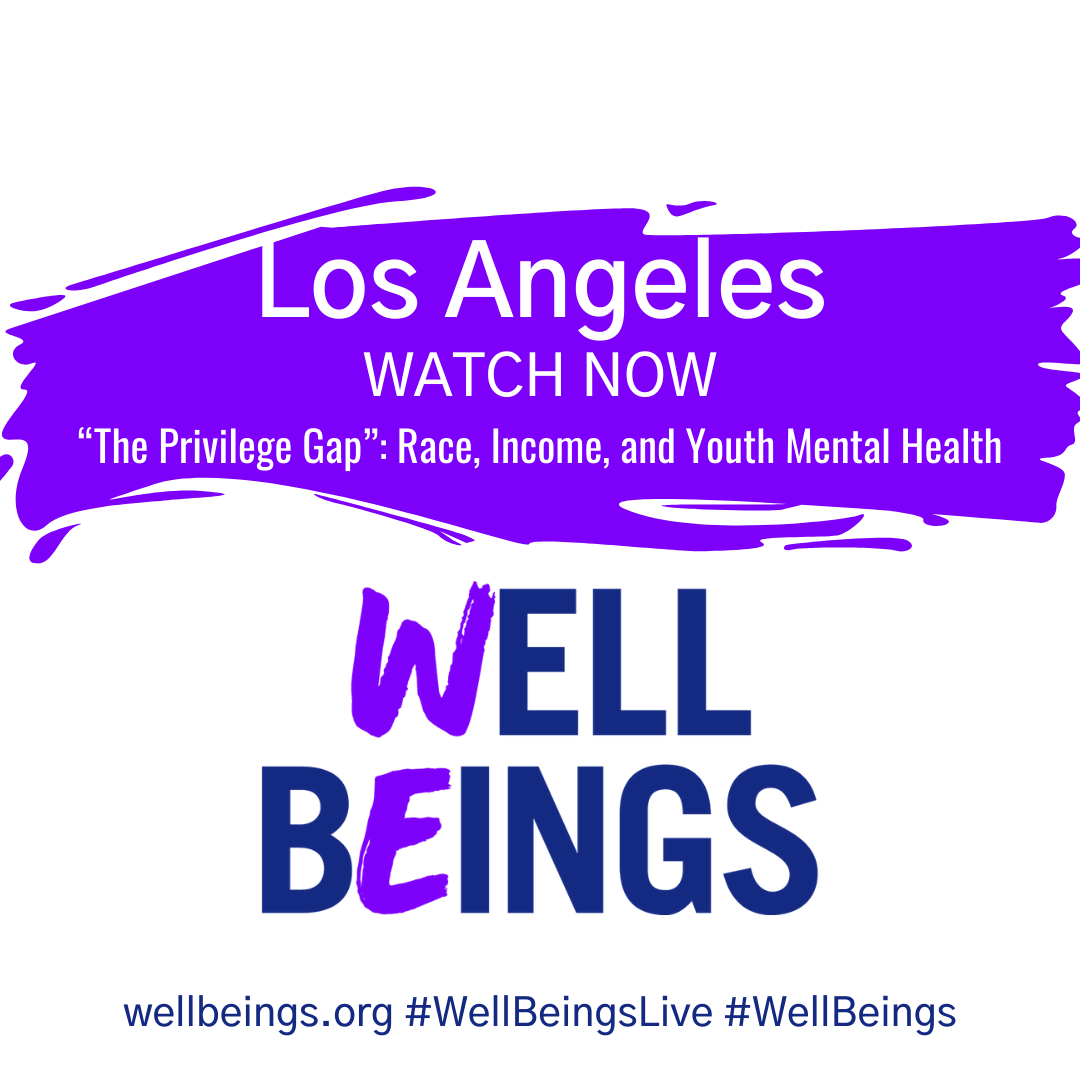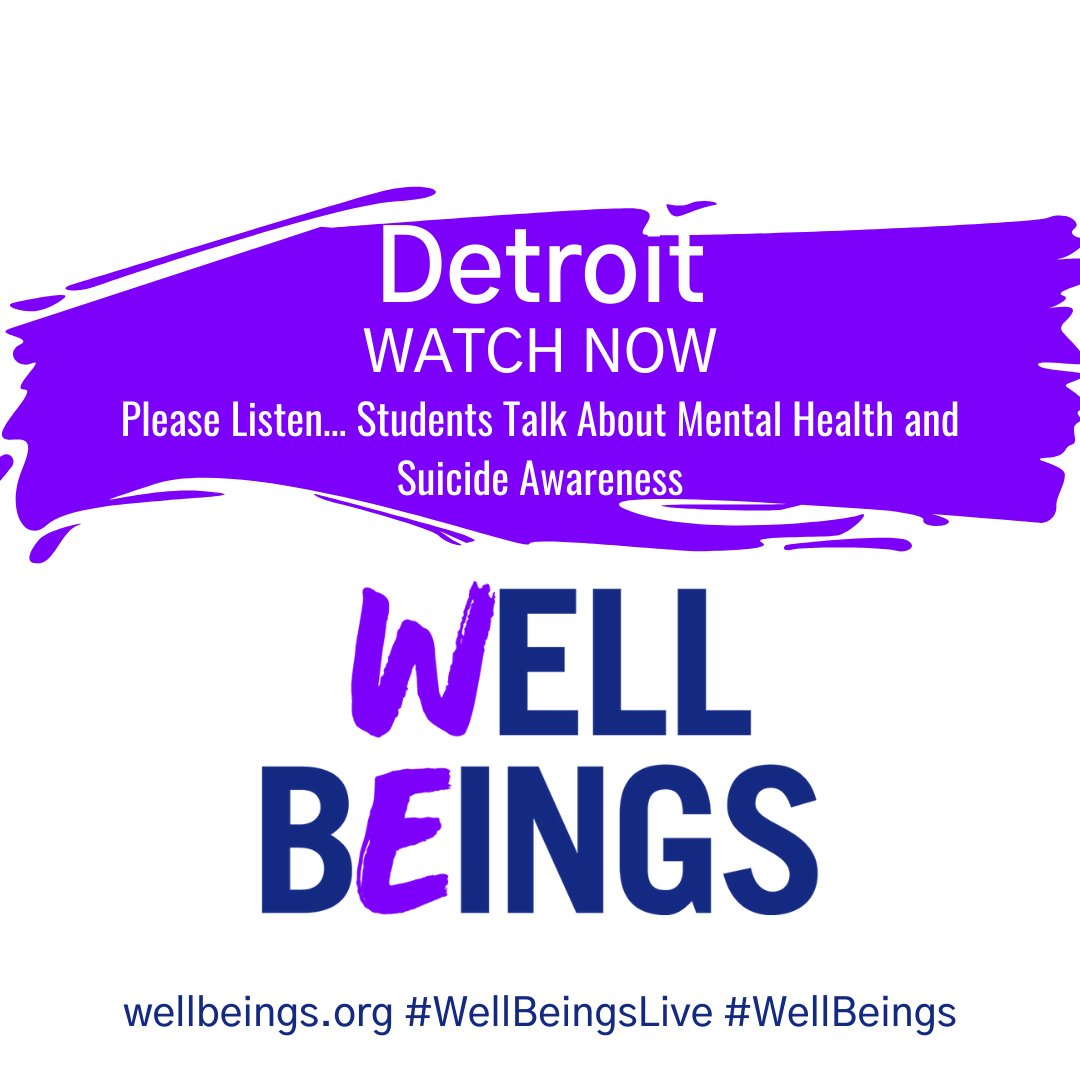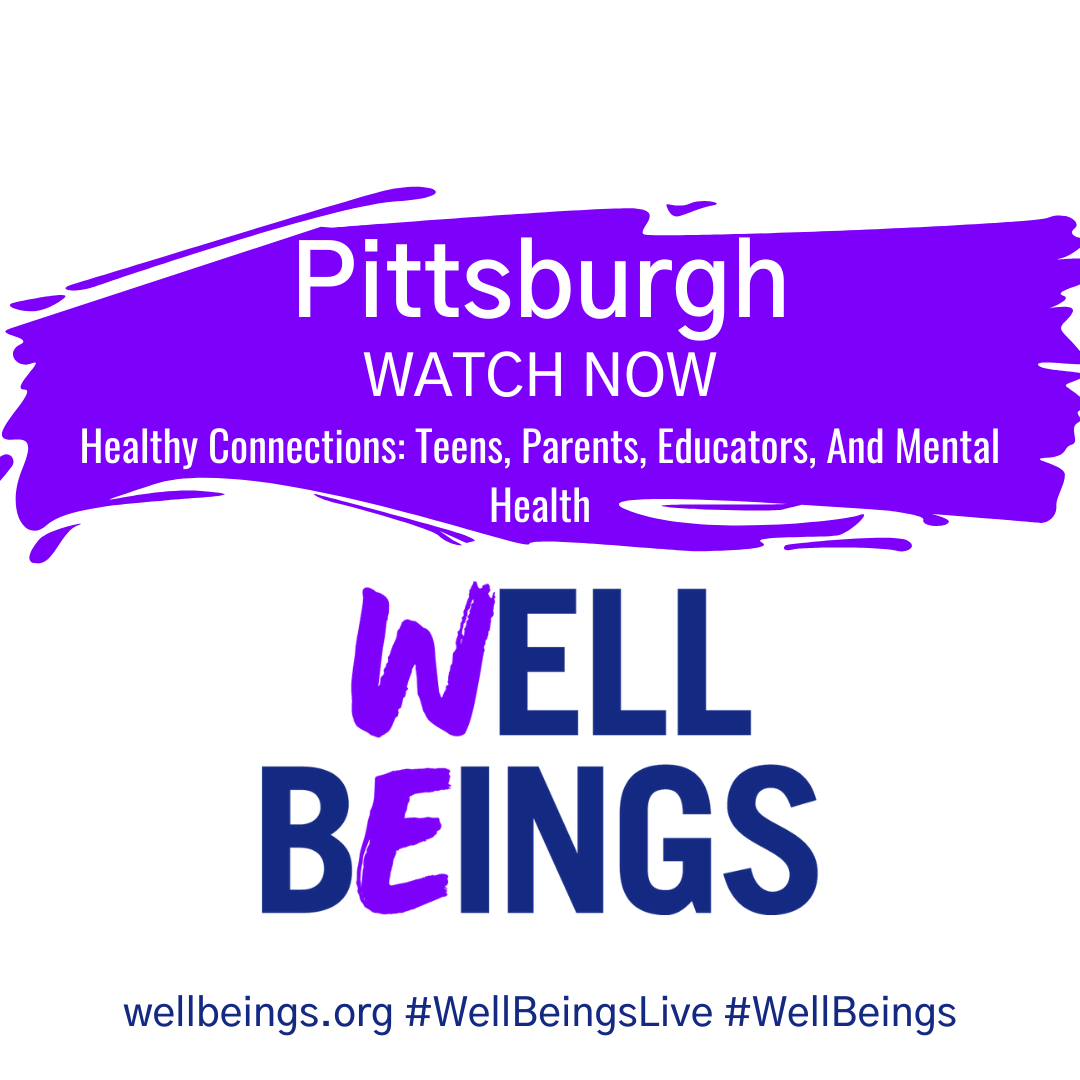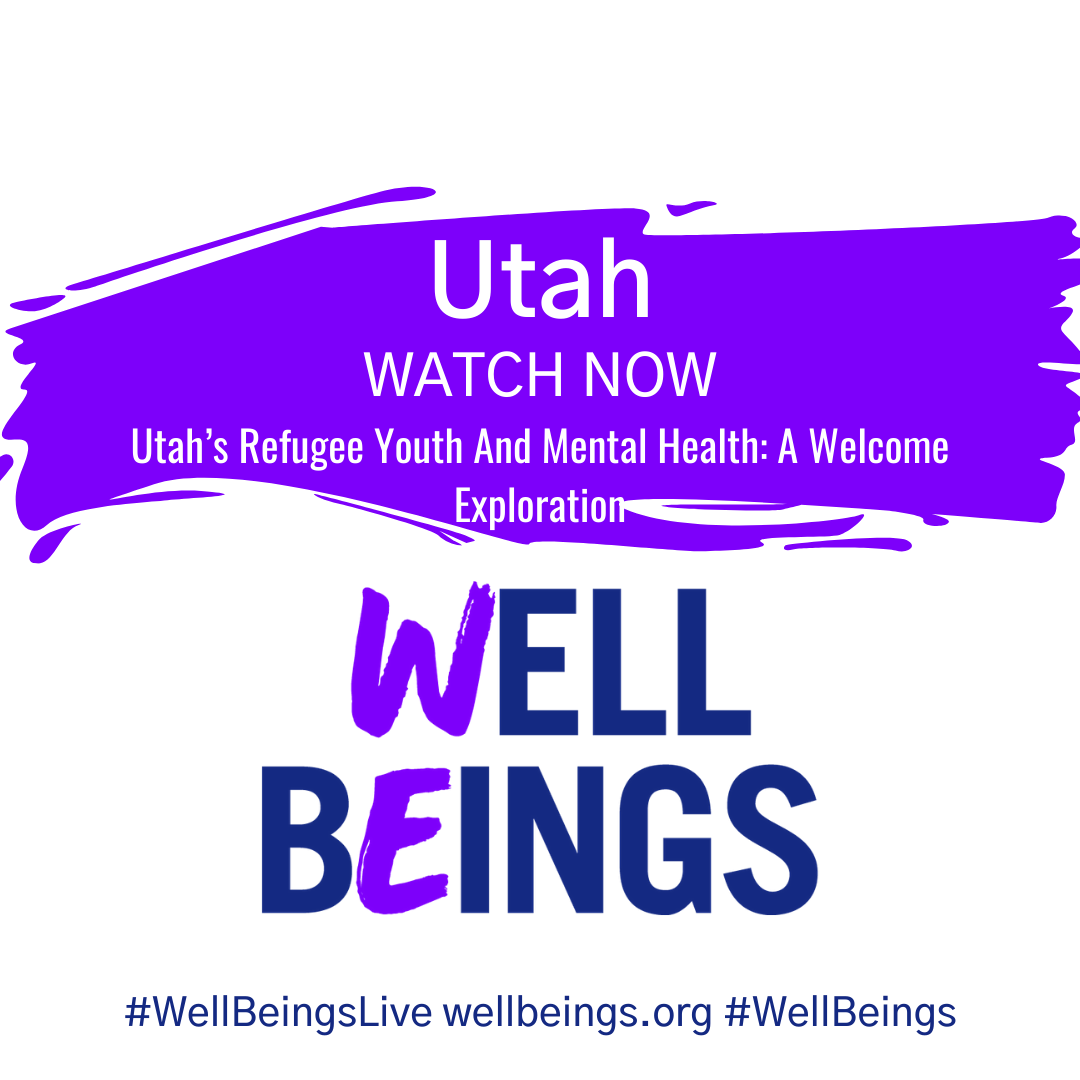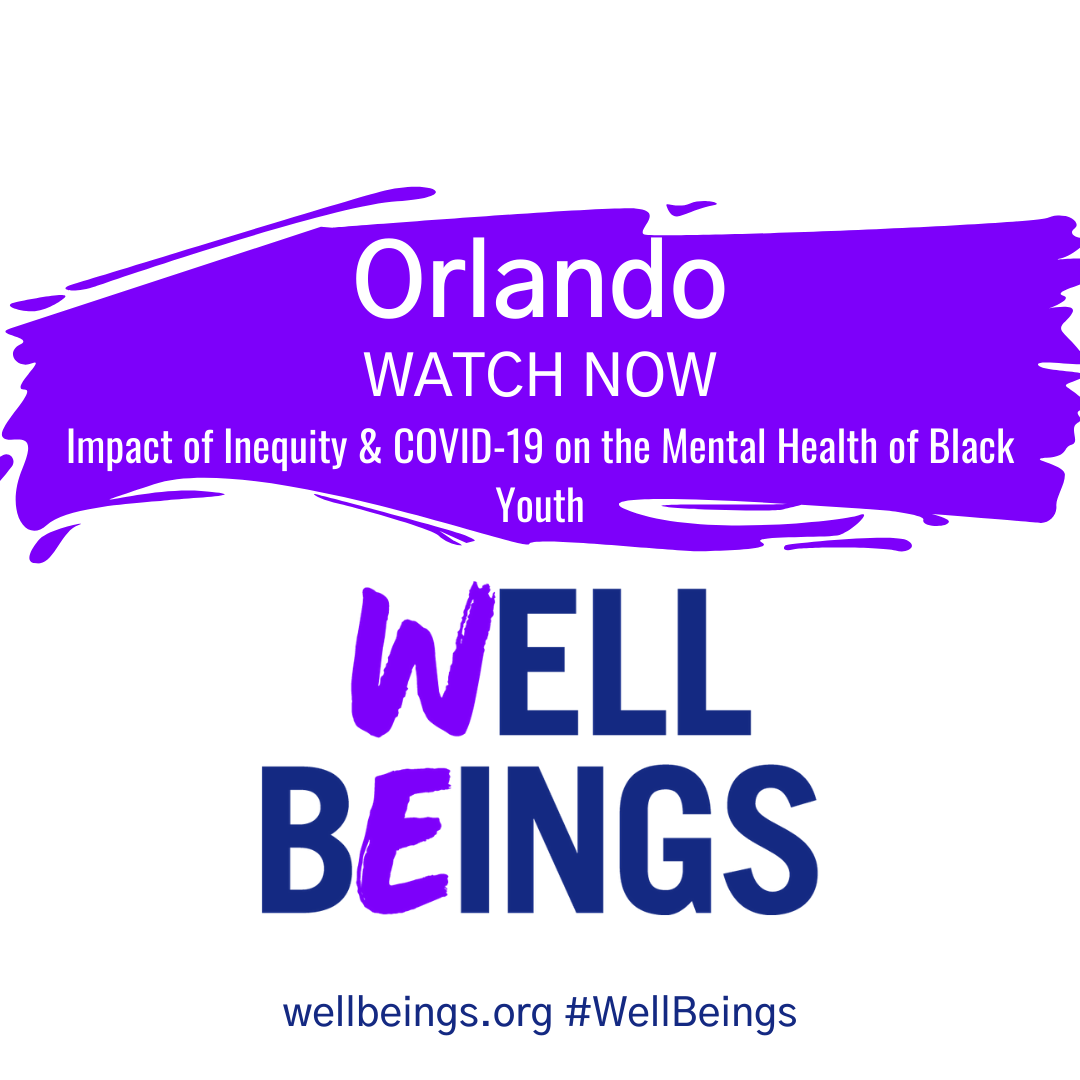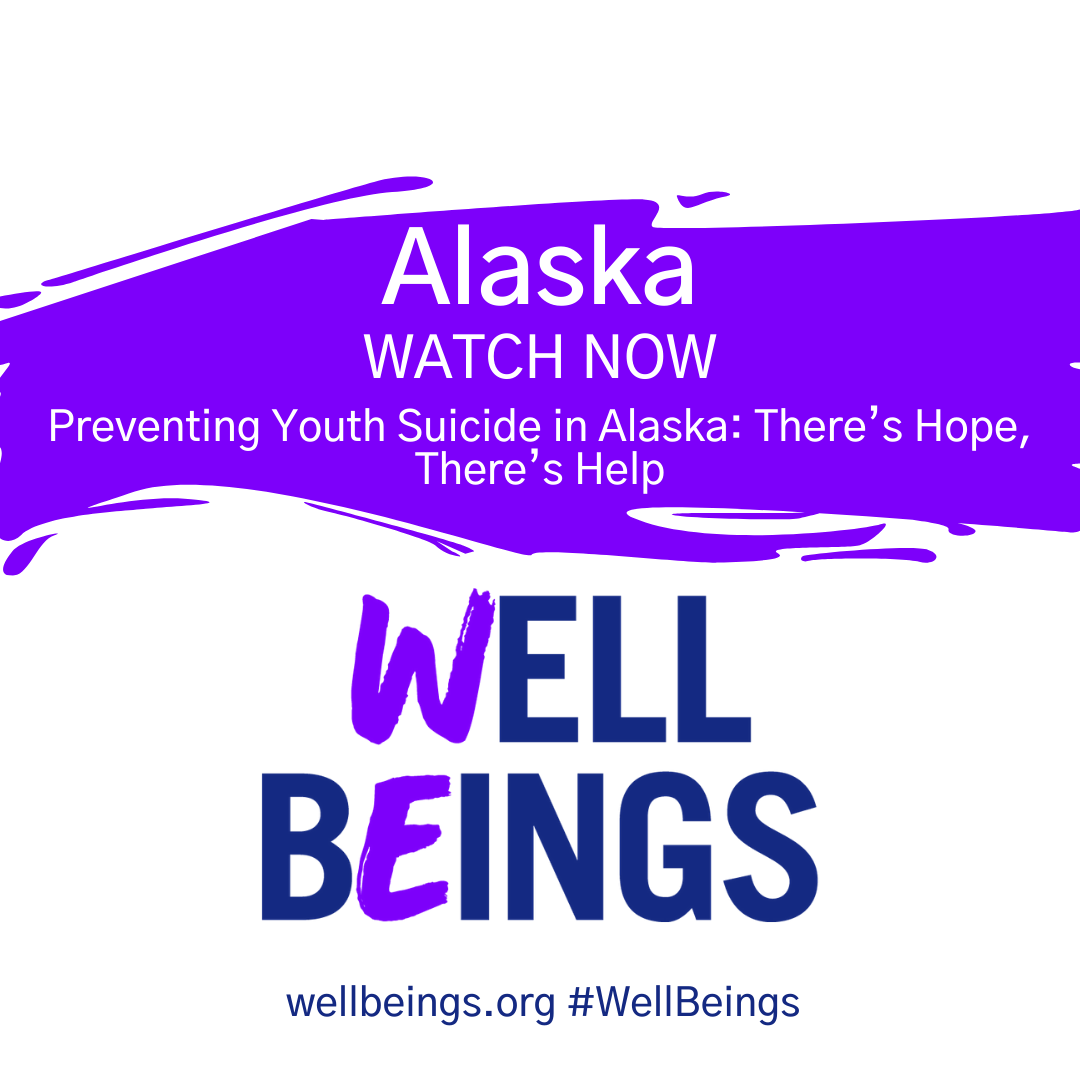call to mind Live
Call to Mind is partnering with WETA’s Well Beings Tour to bring critical local conversations about youth mental health to cities nationwide.
Today’s youth are facing mental and emotional challenges that are often far more stressful than those faced by the adults in their lives. One out of five youth ages 13-18 experience a mental health disorder each year and prevalence rates are increasing. Half of mental illnesses first emerge by age 14 and 75% by age 24. Only half of children experiencing a mental illness are receiving treatment.
As part of the Well Beings Tour, we’re working with local public radio stations across the U.S. to produce “Call to Mind Presents:” live, virtual events and radio broadcasts addressing essential issues related to youth mental health in local communities. See if we’re coming to a town near you!
About the Well Beings Tour
The Well Beings Tour will be coming to 34 cities across the country, 2020 – 2022, in collaboration with public media stations, local community organizations, national sponsors, and partners. Through community town halls and discussions, youth storytelling, performances, resource fairs, and more, the Well Beings Tour will convene and connect communities in a joint effort to address stigma and raise awareness about mental health and well-being. More at wellbeings.org and #wellbeings.
For many Americans, community college is an important path toward climbing the economic ladder. Programs can be more accessible to a wider swath of the public and offer vital certifications and degrees in trades, frontline medical work and other core aspects of our economy. Community college students often juggle classes with raising families, working or dealing with other stressful constraints on time. But unlike four-year universities, mental health services at community colleges are severely lacking or non-existent.
DISPATCHES FROM WITHIN – YOUTH SPEAK OUT
NORTH CAROLINA
The youth mental health crisis is on everyone’s mind; as families, care providers and educators ask what they can do, who better to hear from than the students experiencing these struggles?
How is the stress of COVID-19 impacting the well-being of young people? As educators struggle to maintain safe learning environments, many of the emotional effects of the pandemic linger. And for some, the stress of uncertainty is compounded by the overwhelm of the return to in-person learning and the weight of academic expectations. Add the larger concerns about climate change and the politically divisive atmosphere, and you get what could be called an anxious generation.
Despite dropping rates, the United States still incarcerates more young people than any other country. According to the Wisconsin Department of Corrections, as of July 2021 93% of the youth housed at Lincoln Hills and Copper Lake juvenile correctional facility have a mental health condition. Of those youth, 25% have a serious illness.
Join Call to Mind, Well Beings and WYPR on June 28 for a live, virtual discussion centered around how evictions affect the mental health of children and youth, and how trauma from housing instability can span lifetimes and generations. As well as a conversation with parents and mental health specialists about ways that Black parents can have conversations with their children about what it means to be Black in America now, and a conversation with young leaders about how they are helping their peers to restore their mental health after experiencing violence.
About 5,000 young people are currently experiencing homelessness in Los Angeles County. The reasons vary from abuse or conflict at home to housing and economic insecurity experienced by families. Now, after more than a year of a global pandemic, many advocates worry those numbers could climb.
Texas has the highest number of children in poverty in the U.S., with a child poverty rate of 19% in 2019, equaling 1.4 million kids. Texas scores in the bottom third of all states when it comes to child poverty in the U.S. — it ranks 37th of 50. Join KERA's Syeda Hasan and community members and experts to explore how the mental health of children and teens is affected by poverty.
Many teens are still cut off from valuable connections and have been since the pandemic shut down schools. Friends and teachers have been less available. Remote learning has shifted reality pausing clubs, sports and extracurricular activities that gave so many teens added purpose and connection. This new isolation is triggering feelings of anxiety, depression and worse.
The coronavirus response has disrupted the lives of young people in many ways, resulting in missed milestones and opportunities. Life is not “on hold” for teens this year, it’s still moving forward. How are young people finding ways to cope with the disappointments and tangible setbacks?
Black teens and young adults in Minnesota are challenged by the politicization of race, the killing of George Floyd and the COVID-19 pandemic, all disproportionately affecting their communities. At the same time, Black youth face inadequate access to well-being support and representative mental health providers. How are young Black people staying resilient amid persistent institutional racism?
In July, Call to Mind and Well Beings hosted an event with Georgia Public Broadcasting (GPB) about the worries related to student wellness when returning to school during the coronavirus pandemic.
Suicide is a leading cause of death among 10 to 24-year-olds in Nebraska. Call to Mind, Well Beings and Nebraska Education Telecommunications (NET) had a discussion in August with health experts and youth about this issue and ways to address it.


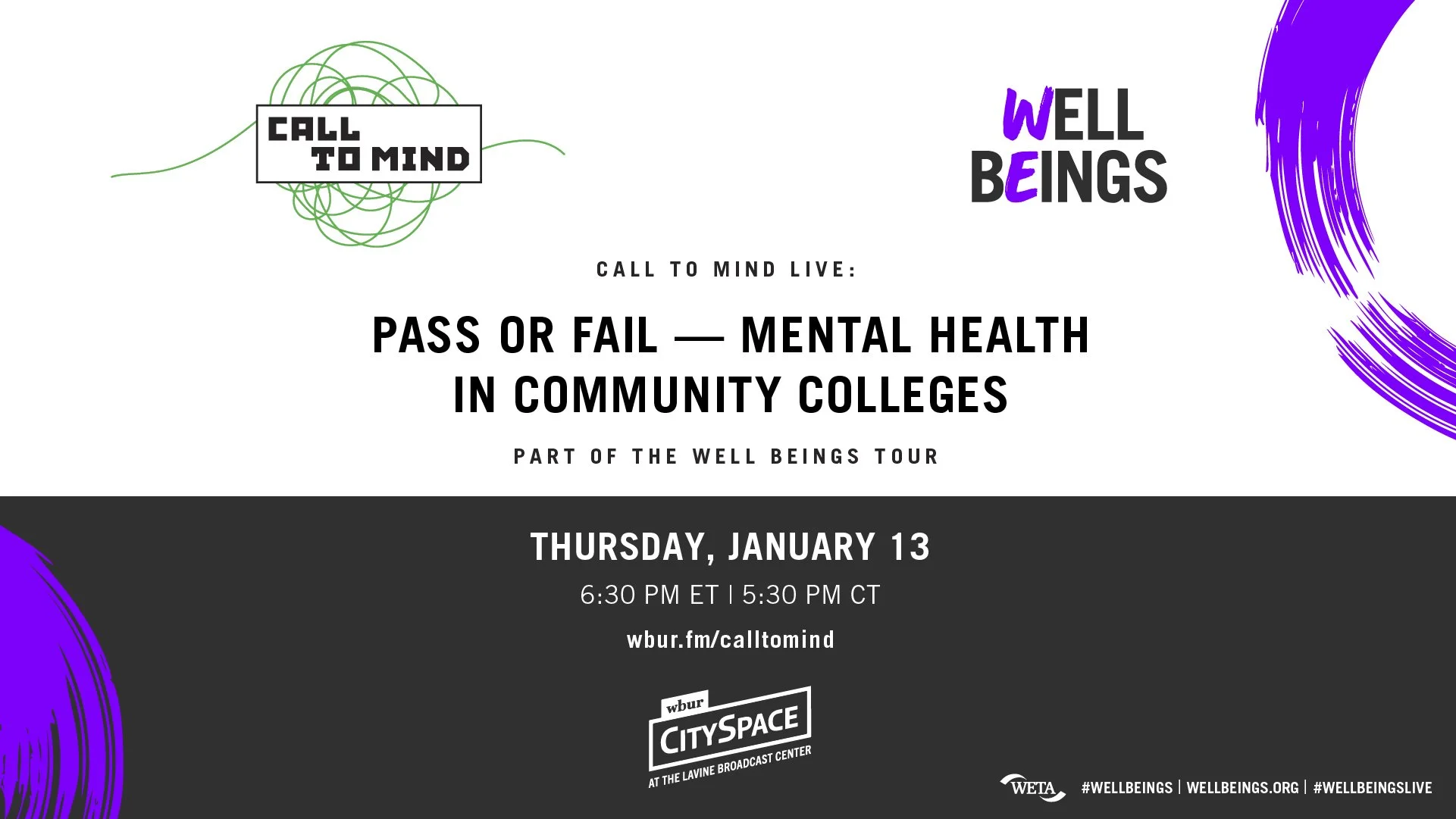
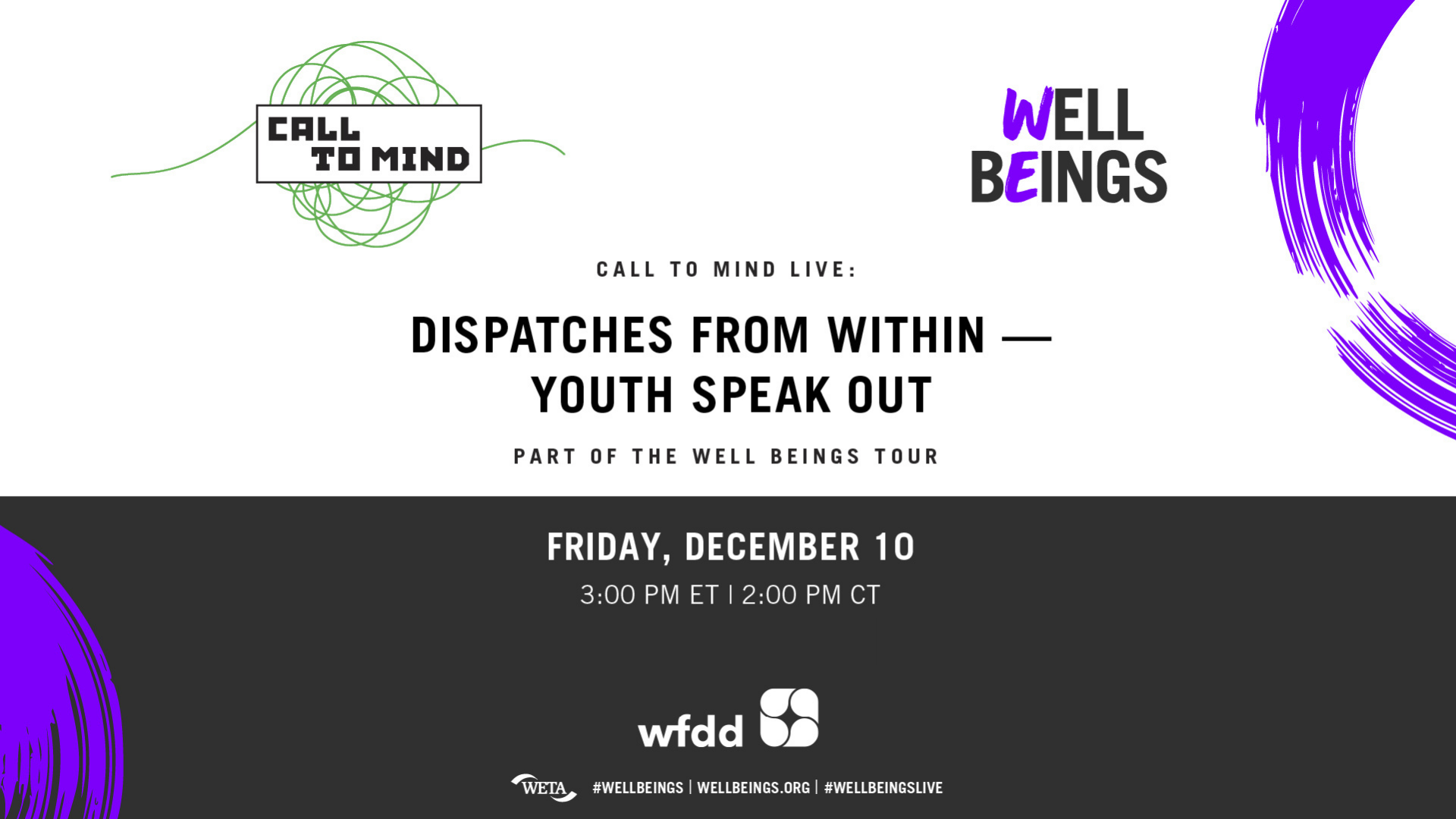
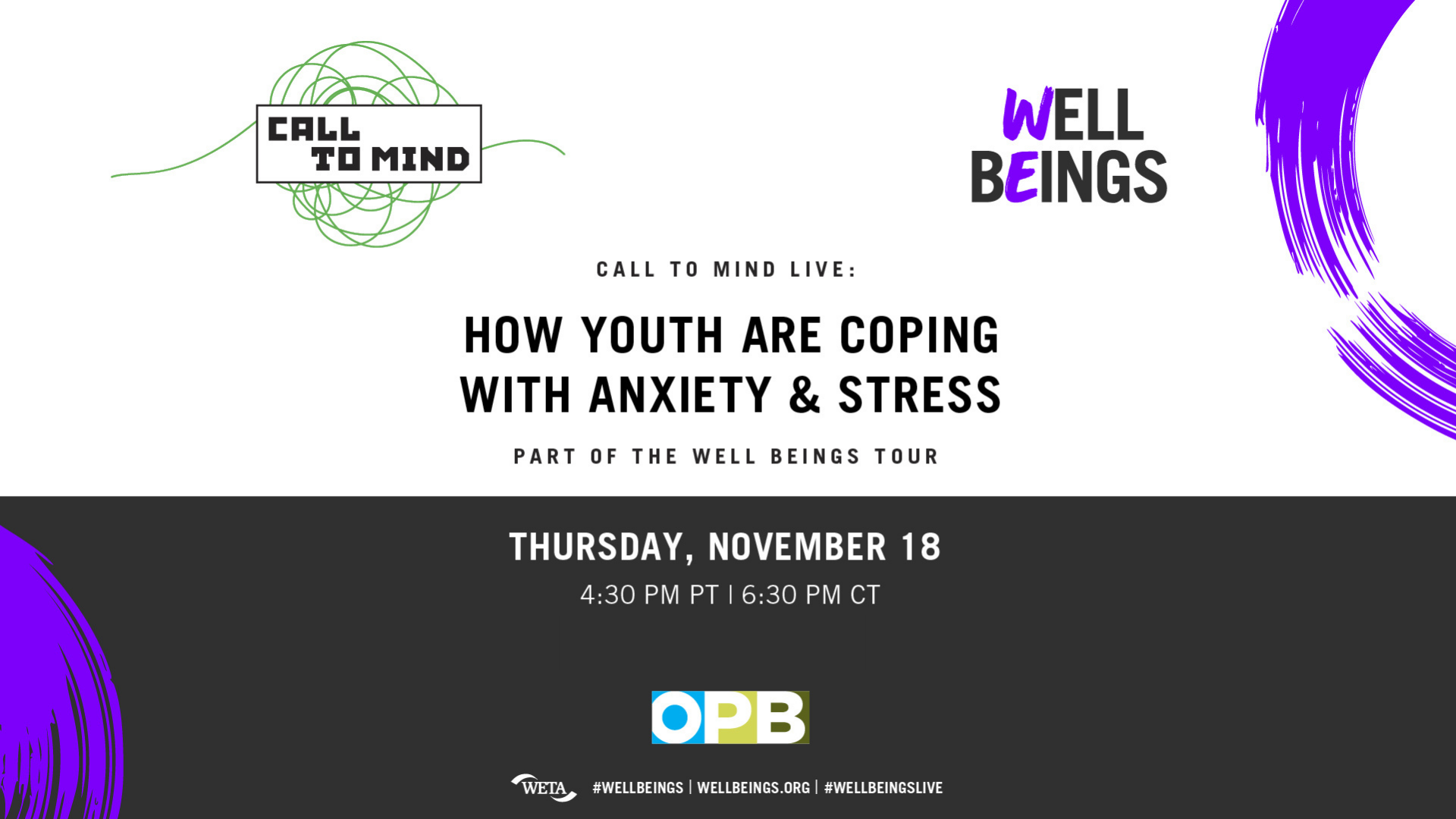


![APM-0064-21 Call to Mind Well Beings KPCC MayWeb 16x9[2].jpg](https://images.squarespace-cdn.com/content/v1/5c9d3f0ab2cf79afa46b7aa1/1620333618120-Q4POK0D6M28IM4INRQNB/APM-0064-21+Call+to+Mind+Well+Beings+KPCC+MayWeb+16x9%5B2%5D.jpg)


